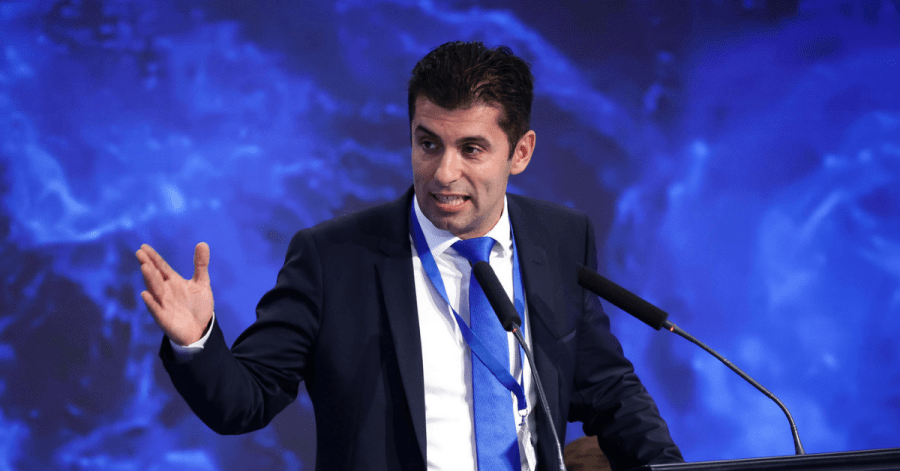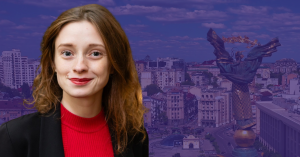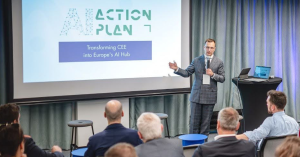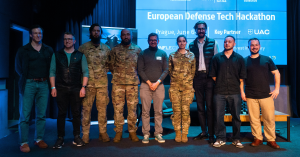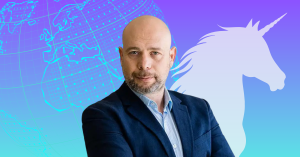On the 8th and 9th July, Sofia hosted the fourth business forum of the Three Seas Summit, a joint project between 12 CEE countries – Austria, Bulgaria, Croatia, the Czech Republic, Estonia, Hungary, Latvia, Lithuania, Poland, Romania, Slovakia, and Slovenia, that aims to stimulate regional collaboration in the energy, transport, and digital sectors.
Divided into five panels, on energy, innovation, transport, digitalization, and 3SIIF & Investing in Infrastructure for Inclusive Growth, the forum serves as an opportunity for CEE public officials and business representatives to revive their ecosystems by focusing on more collaboration-driven innovation and knowledge-sharing.
Started as a political initiative by the Croatian and Polish president in 2015, the Three Seas Initiative gradually became more business-oriented and launched its own investment fund in February 2020 to support infrastructure projects. Initially, The Three Seas Initiative Investment Fund (3SIIF) received a €500M financing boost from Poland and Romania, after which the rest of the countries agreed to contribute a percentage of their GDPs. The US invested another USD 300M. The fund, which currently has €1.2B capital under management, functions on a commercial and market-driven basis and aims to multiply the return to its stakeholders by reaching €5B.
Innovation is at the heart of the Three Seas Initiative
The innovation topic is of strategic importance for this initiative and for the development of the regional ecosystems. The Bulgarian caretaker Minister of Economy, Kiril Petkov, made a proposal during the designated panel, for the creation of an innovation investment fund as part of the Three Seas Initiative.
He also presented his idea for the establishment of a regional digital hub for biotech and pharma in Sofia Tech Park. The idea is for startups and companies from the SEE to be able to fuel their innovations and research with the power of the recently installed supercomputer there.
Mariya Gabriel, EU Commissioner for Innovation, Research, Culture, Education and Youth, Andres Sutt – the Minister of Entrepreneurship and Information Technology of the Republic of Estonia, and Mihnea Craciun from Endeavor Romania also joined the panel. Together they explored how innovation efforts of the SEE countries can be undertaken in a coordinated collaboration and how the investment, talent, and R&D capacities of these countries can be jointly utilized.
Connected innovation ecosystems
“Innovations are economic multipliers but what we need is an ecosystem approach,” EU Commissioner Mariya Gabriel pointed out. According to her, two critical challenges faced by the SEE region today are that most of its best scientists and innovators find better opportunities abroad and that new technologies and innovations diffuse too slowly across Europe. Commissioner Gabriel urged the leaders of the regional innovation ecosystems to address the fragmentation between each other in terms of venture capital and talent. She highlighted that the common challenges that the regional ecosystems face can be jointly resolved if SEE countries work together to strengthen and connect their innovation communities and show more inclusiveness towards the young scientists and entrepreneurs.
Content-driven digitalization
Kiril Petkov noted that all advanced economies have specialized in specific industries. “If we just try to chase the leaders in a particular vertical, the chances that we will become as competitive as they are is very low. Therefore, we should concentrate on crossfield innovation, think about our local strengths and combine them across the region. With this we will be able to create new verticals of innovation instead of trying to catch up on existing fields,” Petkov commented.
The caretaker Minister of Economy, who is also tightly connected to the local innovation ecosystem and is a founder himself, highlighted that digitalization cannot exist without the infrastructure but it needs content in order to thrive. “Fiber optic cables, 5G servers, and supercomputers are all there to serve a purpose, and unless we add content to that infrastructure, we cannot make use of its full potential,” he outlined.
Don’t play the catch-up game
During the Panel, it was mentioned that in order for the SEE countries to fund their infrastructure and energy demands and reach the level of competitiveness of Western Europe, the region will need around €2T, which exceeds the €1.2B at the disposal of the 3SIIF. Coming from this logic, Kiril Petkov suggested that the most efficient way for SEE countries to invest and bring value-added to their stakeholders in the face of taxpayers and companies, would be through specialized pilot projects. “We have a billion, let’s each suggest a project that is €50M and that does not replicate, then each of the stakeholders can see the added-value from the initiative,” he explained.
His proposal is related to the supercomputer of Bulgaria which was recently installed in the building of Sofia Tech Park. According to the Minister, the supercomputer is an example of a powerful digital infrastructure without content running on it. His vision is to bring end-users from all 12 countries, part of the initiative, and transform the infrastructure into a digital hub and data storage center for SEE biotech and pharma companies that need the power of the machine to conduct digital modeling and analysis. Backing his idea with statistics and data, Petkov pointed out that according to research, one of the biggest competitive advantages of our regions is doing clinical trials. He proposed the creation of a dedicated biotech hub building with R&D offices, startups from the regional ecosystems, and VCs, as well as the establishment of a biopharma labs complex that will cover the whole lifecycle of drug development.

